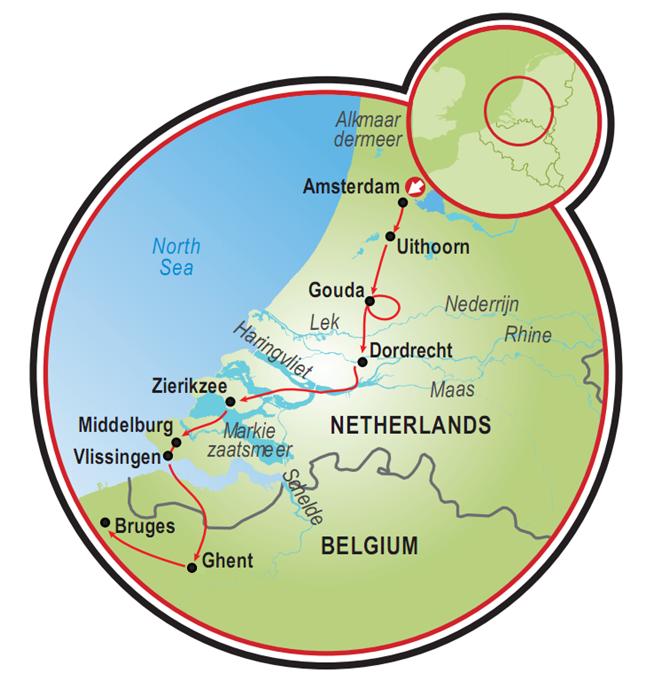
The Netherlands
My family and I have been fortunate enough to travel to the Netherlands. We spent a weekend in Amsterdam last year. The people are wonderful and we were amazed by all the bicycles there. They actually have separate lanes and traffic lights integrated into the roads for all the cyclists. This picture made me smile as I researched schools in the Netherlands!
I am really enjoying communication with my contact, Ankie, from the Netherlands. I asked her to share with me a few things regarding their education system. First, I wanted to know if the government paid for any of their early childhood programs, similar to our state funded programs. Next, I wanted to know at what grade they began teaching English, or other languages, in their country. This is what she had to share:
When a child is born, working parents in the Netherlands can choose a number of ways to take care of "babysitting".
- daycare, from 0-4 years
- professional childminders/nannies usually max. 6 children in their home, 0-4 years
- same, but in your home, nice when you have a bigger family
- preschool 2-4 years, usually only 2 mornings/afternoons a week, really aiming on teaching children stuff.
Gouvernment offers 1/6 of the total costs of daycare per parent, so with two working parent, you can get 1/3 of the total sum subsidised. Unfortunately, this doesn't go for preschool.
The gouvernment only offers some money to minimum-income families, nothing to parents who have a little more to spend.
Migrant children are stimulated more (financially) to attend preschool so they have better chances in primary school, since they usually have a problem with Dutch language.
Overhere, kindergarten is included in the primary school. Almost 100 % of all primary schools are public, so funded by the gouvernment. All 'extra's ' have to be paid by parents e.g. easter/christmas celebrations, schooltrips/ artclasses by outsiders and playground junglegyms.
Children CAN start school at age 4, (about 98% does) , MUST start at 5 and leave after 8 or 9 years, so around 12 years of age.
Since 1985 English is taught in all schools to children in the last two grades of Primary school.
In 2000 a small group of schools in the Rotterdam area started to teach English in Kindergarten, all the way through to the last grades.
In 2010 this number grew to around 500 schools, but that's still only 15% of all primary schools in the Netherlands.
Recently, a pilot has started for 'English lessons' in daycare, but there is nothing definite there. Studies will most likely show that these children only benefit from extra attention to language, and hopefully there is more to come.
Although English is the most chosen language, there are schools along the German or Belgian-Luxembourg border who quite understandebly chose to teach German or French as a second language. These schools are sibsudised in a similar way as ESL-schools.
The current administration is reluctant to stimulate more schools to do so, since some of the more right-wing/nationalistic parties fear for the loss of Dutch language skills and culture with this development. (we have 10 parties in our gouvernment)
This is also the reason why content-language-integrated-
All other teaching in school HAS to be in Dutch. This is too bad, because what better way to teach children subjects as bodyparts and movements than through gymclass?
The gouvernment pays a very small subsidy to these ESL-schools, so usually schools turn to the European Community for a three-year-grant to get things going. After that, it's all on the schools own expences. Hired (near-)native speakers are considered 'extra', and with the crisis it is understandable that these teachers are among the first to feel the effects of cut-backs.
This is why I couldn't keep my job at that time. The school was sad to see me go, but felt I became too expensive.
The trick to ESL-teaching in a non-English speaking country is to ONLY speak English, so the children have no other option than to try to speak to you in English. In my school, we all pretended I couldn't speak any Dutch, so the only way even my collegues adressed me was in English. Some parents even really thought I didn't understand any Dutch, haha! Only during closed-door-teachers meetings I could drop the act and speak Dutch.
I am learning so much from my international contact. I really admire her for her passion and am looking forward to our next discussion.



